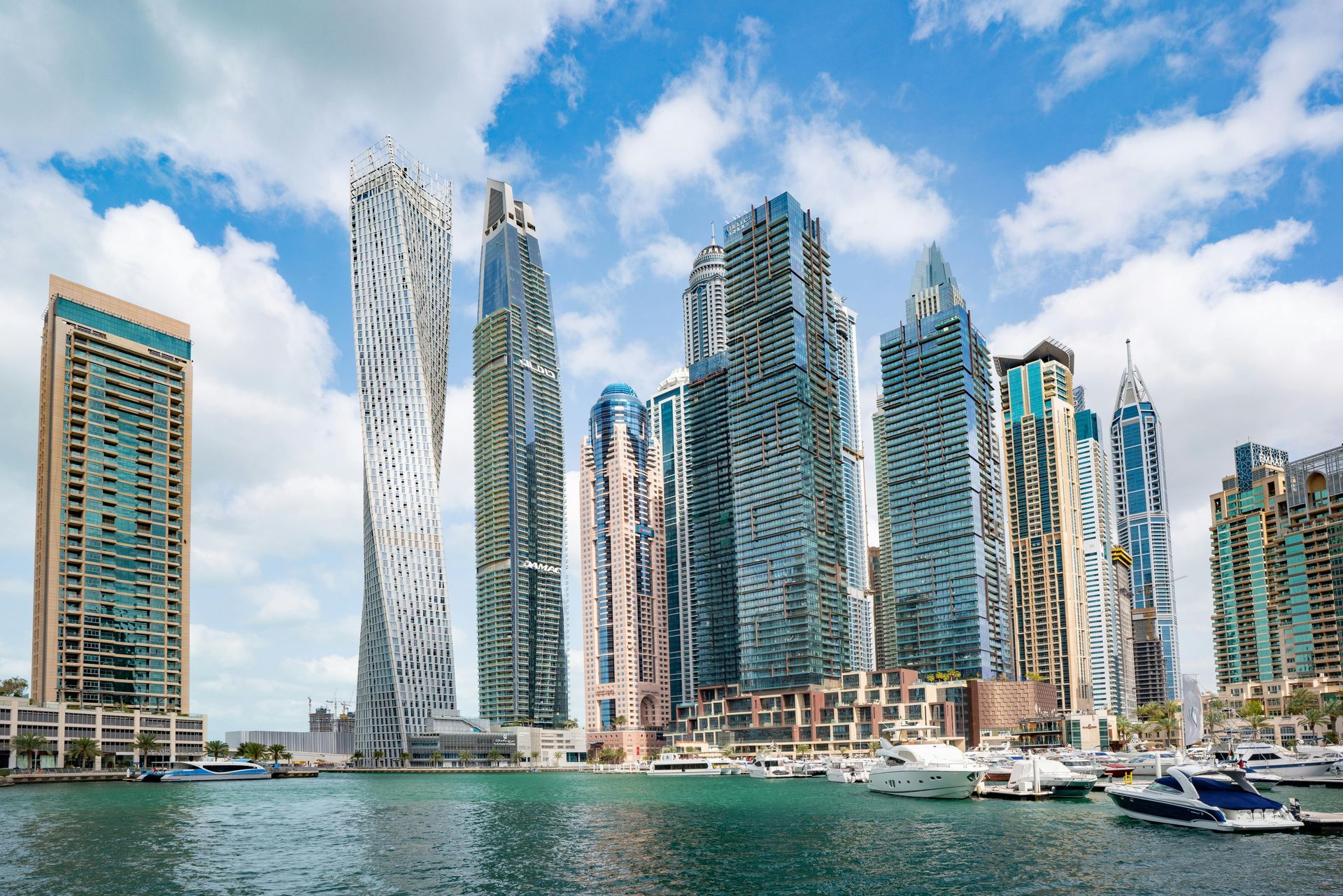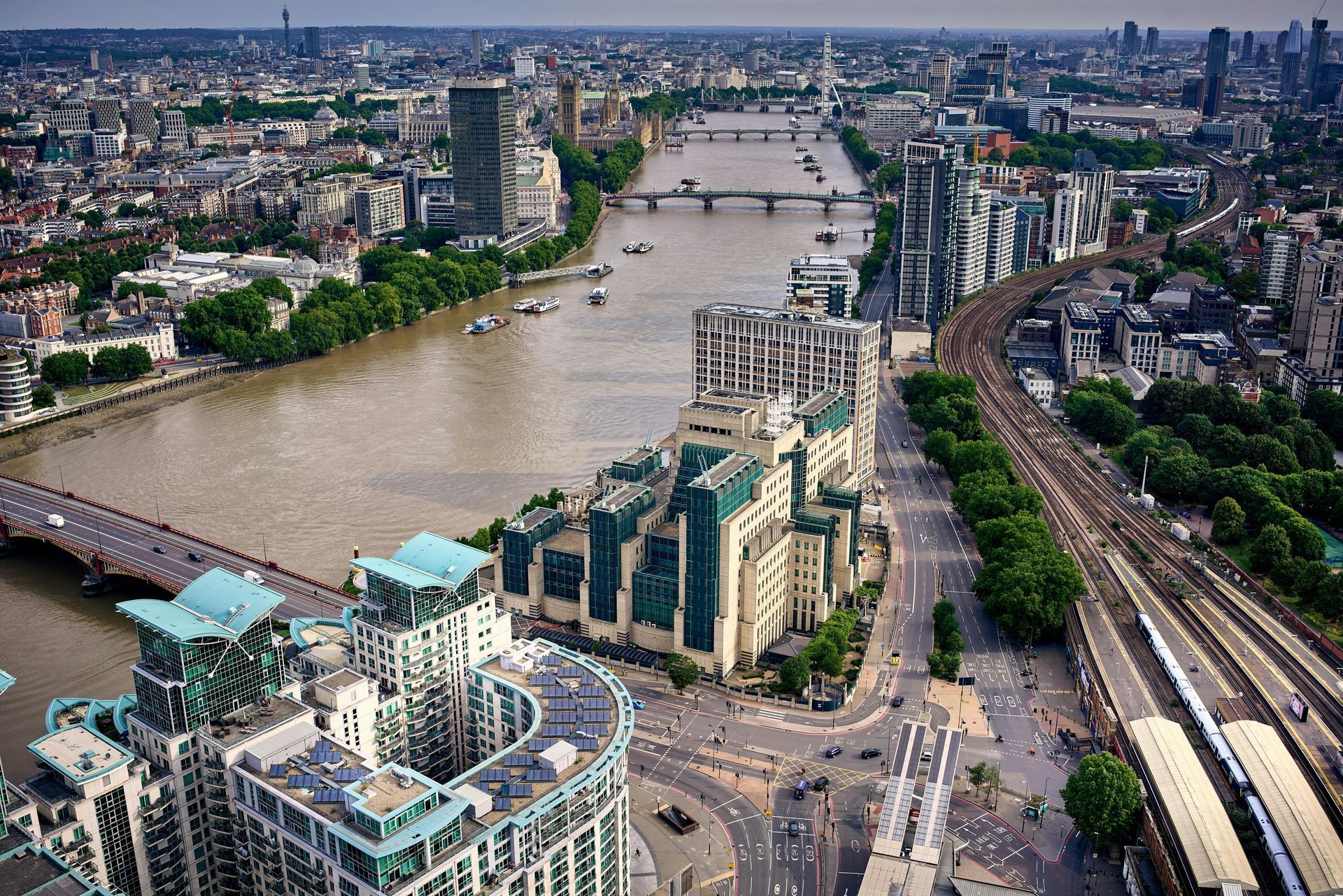New Year, New Tax Rules: UAE Introduces Penalties for Late Corporate Tax Registration
Andy Wood • January 16, 2025
New Year, New Tax Rules: UAE Introduces Penalties for Late Corporate Tax Registration

Introduction
As businesses prepare for a fresh start in 2025, a crucial update for companies operating in the UAE has emerged: stricter penalties for late corporate tax registration. Against the backdrop of the UAE’s efforts to align with global tax standards, the Federal Tax Authority (FTA) has introduced new measures to encourage compliance and deter delays. These changes are a sharp reminder that, as with any jurisdiction’s tax framework, the devil is in the detail.
Why the Change?
The UAE corporate tax regime, introduced in June 2023, has been a seismic shift for businesses in a region long regarded as a tax haven. Now, the FTA is turning its attention to enforcement, particularly around corporate tax registration. Companies that fail to meet registration deadlines will face penalties designed not only to incentivise compliance but also to underline the importance of timely disclosure in a maturing tax system.
The penalties, effective from January 2025, range from AED 1,000 for the first month of delay to escalating monthly fines of AED 2,000, capped at AED 50,000. The message is clear: procrastination will be costly.
Navigating the New Tax Landscape
With these penalties in place, businesses must act swiftly to ensure compliance. For some, this may mean registering for the first time; for others, it’s about double-checking that existing registrations meet the FTA’s requirements. Either way, the onus is firmly on companies to avoid unnecessary costs.
Here’s how to prepare:
1. Audit Your Tax Obligations:
Understand whether your business falls within the scope of UAE corporate tax and ensure all registration requirements are met.
2. Seek Professional Guidance:
The UAE tax regime is nuanced. Working with our tax adviser
can help with the finer points and ensure complete compliance.
3. Act Early:
Registration deadlines can creep up. Build a timeline to avoid last-minute scrambles and penalties.
Late Registration Penalties: What You Need to Know
The penalties for failing to register for UAE corporate tax on time include:
• AED 1,000 for the first month of delay.
• AED 2,000 for each subsequent month of delay.
• A maximum penalty cap of AED 50,000.
While these figures may seem modest compared to penalties in other jurisdictions, they represent a significant shift for the UAE, signalling its commitment to creating a robust tax framework.
Frequently Asked Questions (FAQs)
1. What is the deadline for corporate tax registration in the UAE?
The registration deadline depends on your company’s financial year. For most businesses, registration must be completed before their first tax return is due.
2. What happens if I miss the registration deadline?
Companies that fail to register by the due date will incur a penalty of AED 1,000 for the first month and AED 2,000 for each additional month of delay, up to a maximum of AED 50,000.
3. Can the penalties be waived or appealed?
The FTA may consider waiver requests on a case-by-case basis, particularly if there are extenuating circumstances. However, companies must demonstrate good faith and provide evidence to support their claim.
4. How can I ensure compliance with the corporate tax rules?
Engaging a tax adviser
or consulting with legal professionals experienced in UAE tax law is the best way to ensure compliance. Regularly reviewing updates from the FTA will also help keep your business informed.
5. Are there penalties for incorrect or incomplete registration?
Yes, providing incorrect or incomplete information during registration can lead to additional fines. Accuracy is critical when submitting your details to the FTA.
6. Does the penalty apply to free zone entities?
Free zone entities are required to register for corporate tax, even if they qualify for a 0% tax rate. Penalties for late registration apply equally to free zone entities and mainland businesses.
The bottom line...
Businesses operating in the UAE will find these changes demonstrate the increasingly complex tax environment. Although penalties for late registration may seem minor, they're an indicator of greater transparency and accountability within this jurisdiction. Preparation is key. Whether registering your business for the first time or making sure it complies with all relevant legislation, 2025 is not the year to leave things to chance.
Have any questions about this article or need expert guidance on corporate tax registration and understanding the UAE’s ever changing tax regime, contact us today.

Introduction More wealthy UK residents are exploring life overseas ahead of the 2026/27 tax year. Higher UK taxes, political uncertainty and a desire for a different way of living are all pushing people to look at alternatives. Four destinations stand out for high-net-worth UK individuals as at late 2025: 1. United Arab Emirates (Dubai) 2. Portugal 3. Switzerland 4. Malta Each offers a different blend of tax advantages, residency options and lifestyle. United Arab Emirates (Dubai) - Dubai is now the default choice for many UK entrepreneurs and professionals. Tax For individuals, there is currently no personal income tax on salaries, bonuses or most investment income, and no local capital gains or inheritance tax regime for individuals. There is VAT and a developing corporate tax regime, but personal tax remains far lighter than in the UK. The UK–UAE double tax treaty helps reduce the risk of the same income being taxed twice and needs to be considered alongside UK residence rules. Residency Common routes for UK nationals include: Employer- or company-sponsored residence visas Remote-worker visas for those employed or self-employed abroad Long-term “golden” style visas linked to investment, property or professional status Retirement options for over-55s. (All require private health insurance and periodic renewal.) Lifestyle Dubai offers a high standard of living, excellent connectivity and a large, well-established British community. Housing and schooling are expensive and the lifestyle can encourage overspending, but for many the tax position and opportunity outweigh the costs. Best for: Maximising net income and building or scaling a business in a dynamic, international city. Portugal - Portugal appeals to those who want EU residency, a milder climate and a slower pace of life. Tax The old NHR regime has closed to new applicants and been replaced by a newer incentive framework (often referred to as IFICI) aimed at certain professionals and activities. The UK–Portugal tax treaty reduces double taxation, and Portugal does not operate a classic wealth tax, though property-related charges can apply. (It's signed and ratified but not yet fully in force as of early 2026, which may slightly affect immediate tax planning). Residency Post-Brexit, common routes for UK nationals include: D7 visa – for those with sufficient passive income (pensions, investments, rentals). D8 / Digital Nomad visa – for remote workers with qualifying income from abroad. Work and other residence visas tied to employment or specific skills. These can lead to long-term residence and, ultimately, citizenship if physical presence and integration tests are met. Lifestyle Cost of living is generally below the UK (though higher in central Lisbon and the Algarve), English is widely spoken in cities, and the public and private healthcare systems are well regarded. There are large British and wider international communities. Best for: Those wanting EU residence, good quality of life and a balance of tax and lifestyle advantages. Switzerland - Switzerland attracts UK families who prioritise security, discretion and top-tier services. Tax Tax is set at federal, cantonal and communal level, so overall rates vary widely by canton. Well-chosen cantons can be very competitive for both individuals and companies. Private capital gains are not generally taxed, but there is an annual wealth tax on net assets, with rules depending on location. For suitable non-working individuals, some cantons still offer lump-sum (forfait) taxation, where tax is based on living costs rather than worldwide income, subject to minimum levels and conditions. Residency As non-EU nationals, UK citizens use: B permits – time-limited residence, often linked to work L permits – short-term residence for specific assignments C permits – longer-term settlement after sustained residence and integration Wealthy retirees and non-working individuals may be able to obtain residence based on financial self-sufficiency and, in some cantons, lump-sum taxation. Lifestyle High costs are offset by excellent infrastructure, schools and healthcare (with compulsory private health insurance). International communities are strong in Zurich, Geneva and other cities, though social life can feel more formal than Southern Europe. Best for: Those seeking stability, discretion and first-class public services and education, rather than the lowest day-to-day costs. Malta - Malta is a compact EU state with a very familiar feel for UK nationals: English is an official language and the legal and business environment is comfortable for British professionals. Tax Malta’s tax system and UK–Malta treaty can be particularly attractive where you hold significant foreign-source income. Under the Global Residence Programme, qualifying individuals can pay a favourable flat rate on foreign income remitted to Malta, while foreign capital gains kept offshore are generally not taxed in Malta. There is no separate wealth tax and no classic inheritance tax, though duties may apply to certain Maltese assets. The separate “golden passport” (citizenship by investment) route has been struck down by the EU’s top court, but residence programmes remain available. Residency Options for UK citizens include: Employer-sponsored Single Permits combining work and residence The Global Residence Programme for financially self-sufficient individuals meeting property and minimum tax thresholds Digital-nomad-style visas for remote workers Long-term residence after several years of compliant stay Lifestyle Costs (especially rent and property) are typically lower than in the UK outside the most fashionable areas. English is widely used in government and business, healthcare is solid, and London is only a short flight away. Best for: Those wanting an English-speaking EU base with favourable treatment of foreign-source income and a tight-knit expat community. How to decide & next steps - All four countries can work extremely well for UK high-net-worth individuals, but for different profiles: Choose Dubai if your priority is low personal tax on active income and you are comfortable with a high-energy city. Choose Portugal if EU residency, climate and lifestyle matter as much as tax. Choose Switzerland if stability, education and healthcare are at the top of your list. Choose Malta if you want an English-speaking EU base with flexible options for foreign income. The right answer depends on your overall wealth, income mix, family plans and how tied you remain to the UK. If you would like bespoke, confidential advice on whether remaining UK-resident or relocating to Dubai, Portugal, Switzerland or Malta is the better strategy for your situation, you are welcome to get in touch to explore your options in detail.

